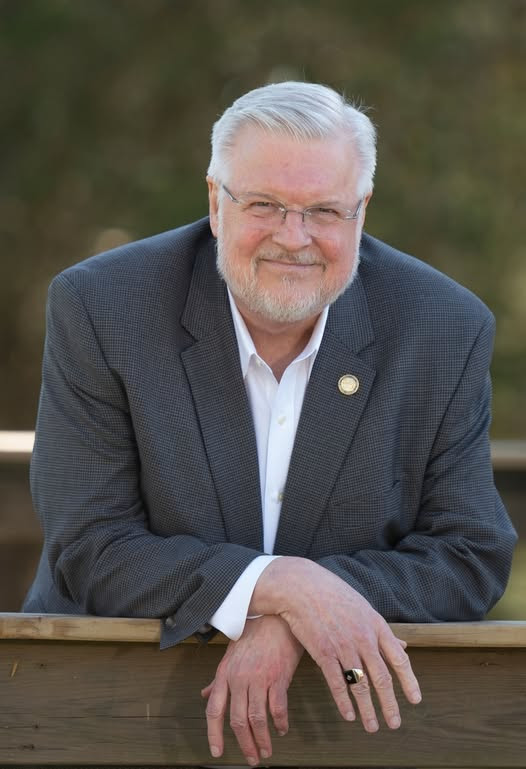by Rev. Mark Creech
RevMarkCreech.org
My mother-in-law has been a Christian for many years. She’s now in her 90s and looking forward to going to heaven.
A few years ago, doctors told her that she had a large tumor in her abdomen and that she needed to have it removed. They explained, however, that at her age, she might not survive the surgery. Without flinching, she opted to have the procedure, which proved entirely successful and free of complications.
While in the recovery room, she slowly began to regain consciousness. As her eyes opened and she looked around, realizing where she was, she blurted out, “Oh, crap!”
That was funny, but it also revealed how much she had been looking forward to being in heaven. “To depart, and to be with Christ,” wrote the apostle Paul, “is far better” (Philippians 1:23).
My mother is still living and has also been a follower of Christ for a long time. My father, her husband of fifty-six years, has gone to be with the Lord, as have her beloved sister, her parents, and most of her peers. When I visit her, we often have long conversations, and heaven is a favorite topic. I must say that I have never seen her enthusiastic about anything as she is about heaven. She lights up at just the thought of it. “Eye hath not seen, nor ear heard… the things which God hath prepared for them that love Him” (1 Corinthians 2:9).
She’s now in her mid-80s and in excellent health, with a sharp and active mind. One day, I told her, “Mom, you’re going to live to be a hundred.” She smiled and replied, “Oh, I hope not.” She’s eager to go, and entirely at peace about it.
I spoke with a hospice nurse this week, and what she shared affirmed some things I have long believed and seen with my own eyes. She said, “There is definitely a difference watching those who know where they are going and those who don’t.”
I asked her to describe an example, and she said, “It’s just that when patients are atheists, irreligious, or not saved, they are much harder to treat for terminal restlessness and agitation. They seem to die a slower, more painful, more restless death, almost as though they’re fighting death even when unresponsive. People with a strong faith, though, seem to die peacefully, calmly, with a look of contentment on their faces.”
I told her that the great Victorian-era preacher Charles Spurgeon once said there is an essential difference between the decease of the ungodly and the death of the godly. “Death to the wicked is the king of terrors,” Spurgeon said. “Death to the saint is the end of terrors – the commencement of glory.”
Scripture says, “Precious in the sight of the Lord is the death of His saints” (Psalm 116:15).
I confessed to her that I don’t even like to imagine stepping out of this life without the Lord. “What a horror that would be,” I said.
Then I added, “If we weren’t living in an age when the dying are so often sedated, there’s no telling what terrors we might hear from the unsaved as they pass from this life into eternity.”
In my library, I have an old article once published by The Sunday School Times, describing what many reportedly said at death’s door in a day when medicine could not easily dull consciousness.
Voltaire, the French Enlightenment author and philosopher, famous for his attacks on Christianity, reportedly cried out, “I am abandoned by God and man: I shall go to hell.”
Charles IX of France said, “What blood, what murders, what evil counsels I have followed. I am lost! I see it well.”
Sir Thomas Scott, once chancellor of England, declared, “Until this moment I thought that there was neither God nor hell; now I know and feel that there are both, and I am doomed to perdition by the just judgment of the Almighty.”
But the same article also recorded the final words of redeemed people.
Dwight L. Moody, the renowned American evangelist and founder of Moody Bible Institute in Chicago, said, “This is glorious! Earth receding, heaven opening, God calling me.”
John A. Lyth, the British Wesleyan Methodist minister and devotional writer, exclaimed, “Can this be death? Why, it is better than living! Tell them I die happy in Jesus!”
And Lyth’s daughter, Mary Frances, whose radiant testimony became famous, said as she was dying, “Oh, that I could tell you what joy I possess! The Lord doth shine with such power upon my soul. He is come! He is come!”
There is coming a moment for each of us when every prop and pretense will fall away. No title, wealth, or earthly wisdom will suffice, only Christ. The question is not whether we will die, but whether we will die with Him as our Savior and Lord.
May it be said of us, as it was of those saints of old and many in our own day, that when the shadows lengthened and the veil began to part, heaven’s light rested softly upon our faces, and our countenance spoke of joy.
“Thanks be to God, which giveth us the victory through our Lord Jesus Christ” (1 Corinthians 15:57).


